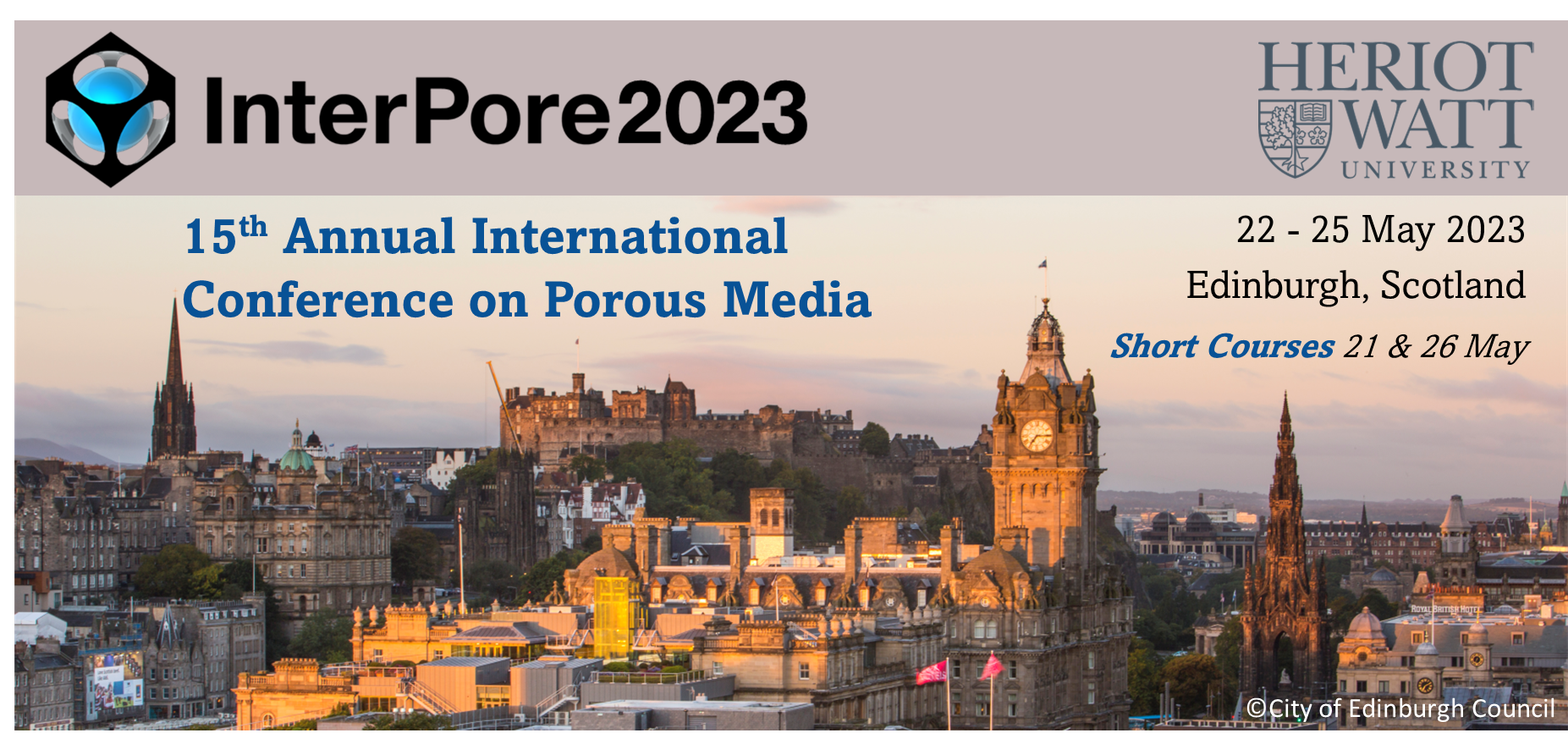Speaker
Description
Gas hydrates are nonstoichiometric crystalline compounds consisting of water and gas molecules, and can play a pivotal role in sustainable development. The formation process of gas hydrates, including nucleation and growth, is intrinsically affected by mineral surfaces and pore confinement in geological sediments. But the mechanisms underlying hydrate formation in confined spaces are not fully understood because of heterogeneities in sediment properties, such as surface wettability. Many studies have indicated that a hydrophobic surface can promote gas hydrate formation through the tetrahedral ordering of the water structure and increased gas density at solid–gas-water interfaces, whereas hydrophilic surfaces exert the opposite effect. However, the combined effects of wettability on both multiphase flow and the formation of hydrates are rarely addressed. In this work, wettability-dependent CO2-water distributions and the corresponding CO2 hydrate growth were investigated using pore-scale modeling. Simulation scenarios with various water contact angles and gas injection velocities were enabled by coupling the two-phase flow solver in OpenFOAM and the geochemical modeling capability of CrunchFlow. Simulation results show that the heterogeneity of water distribution markedly increases as the water contact angle becomes larger after CO2 displacement. Water forms thin films when attached to hydrophilic surfaces but remains as droplets on hydrophobic solids. Compared to hydrophilic systems, the gas‒water interface area in hydrophobic ones is larger owing to gas bubbles dispersed in water, which can promote CO2 dissolution and diffusion into the water phase. In the subsequent formation process of gas hydrate, the amount of hydrate growth is controlled by how fast the hydrate initially forms, which is largely driven by initial conditions and nucleation dynamics, as well as how rapidly the growth rate is reduced, which is controlled by the feedback between hydrate formation and diffusion limitation. Overall, this study demonstrates that surface wettability can play an important role in the gas hydrate formation process in porous media by affecting the gas–water distribution, gas diffusion behavior, and final gas hydrate saturation. These insights provide a more in-depth understanding of gas hydrate formation in porous media.
| Participation | In-Person |
|---|---|
| Country | China |
| MDPI Energies Student Poster Award | No, do not submit my presenation for the student posters award. |
| Acceptance of the Terms & Conditions | Click here to agree |







